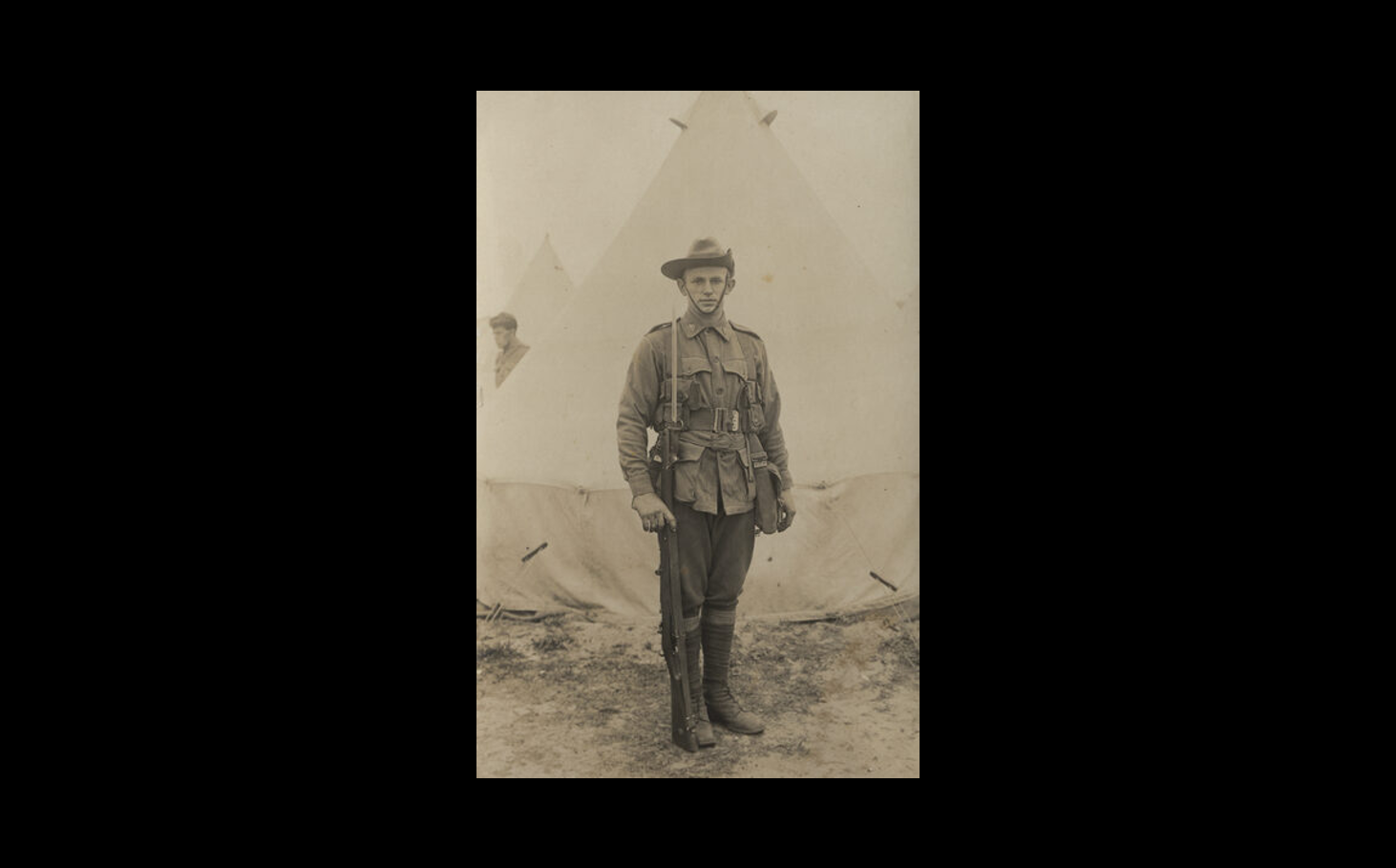From Gallipoli to Beyond the Grave — Hear the Oldest Surviving Voice from World War I
Published: 2 May 2023
By Claire Barrett
via the HISTORYNET web site

Henry Lanser during his training in Egypt. (Australian War Memorial )
Henry Lanser’s words, recorded sometime between December 1914 and January 1915, are believed to be the oldest surviving recording in the world of an ordinary soldier in wartime.
“Well, dear mother and father, Ethel, Edie and Basil… this is rather a novelty to come to Australia this way,” comes the crackling voice of Henry Miller Lanser. “The past week, training is getting heavier every day. My word, the Germans or Turks, as we hear, they are making for Egypt. Whatever happens we will stop them — from laughing anyhow — when we do start.”

Henry Lanser
His words, recorded sometime between December 1914 and January 1915, are believed to be the oldest surviving recording in the world of an ordinary soldier in wartime.
Born in 1890 to Edward and Bertha Lanser of Paddington, New South Wales, the 24-year-old Lanser enlisted in the Australian Imperial Force on Sept. 2, 1914, shortly after the outbreak of the First World War.
Posted to the 1st Battalion, Lanser arrived in Egypt that December in preparation for the now infamous Gallipoli campaign.
According to the Australian War Memorial, Lanser took the opportunity during some down time to make a recording of his voice at a small record manufacturing business. He sent the pressed shellac disc and metal stamper home to his family.
“These recordings were being sold at 10 shillings a pop … that’s an extraordinary amount of money, the equivalent of nearly $60 on a novelty, so he must have really wanted to do it,” Stephanie Boyle, a senior curator at the Australian War Memorial, told The Guardian.
The audio is unique, according to Boyle, as it is the only surviving voice of a young soldier from the Great War. The War Memorial’s archives only consist of oral histories taken from WWI soldiers from the 1970s onwards.
“Their story is only recorded in their voice decades later, when they are very elderly veterans,” Boyle continued.
Read the entire article on the HISTORYNET web site here:
External Web Site Notice: This page contains information directly presented from an external source. The terms and conditions of this page may not be the same as those of this website. Click here to read the full disclaimer notice for external web sites. Thank you.



